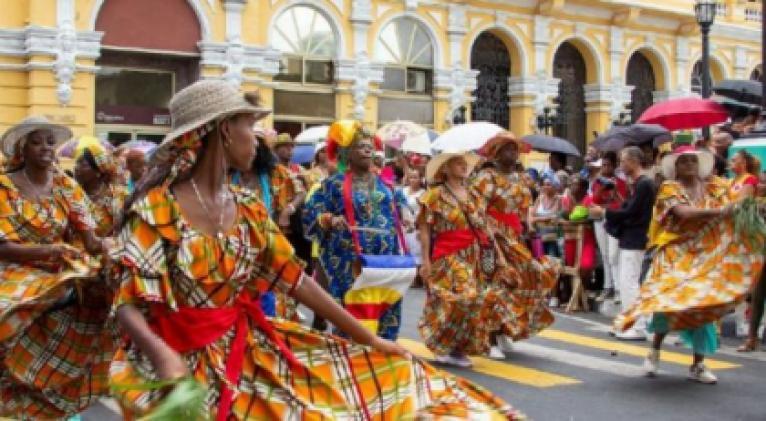Santiago de Cuba in the Great Cultural Caribbean
especiales

This Wednesday marked the conclusion of the 44th edition of the Festival del Caribe in Santiago de Cuba, the city’s most significant artistic gathering. For a week, the city became the cultural epicenter of the region, a magnet for diverse traditions.
Of course, there is no official declaration naming Santiago de Cuba the cultural capital of the Caribbean. That label, if anything, is a promotional slogan—perhaps useful, but imprecise. The Caribbean does not have a single capital because its essence is polycentric and profoundly multicultural. It is a space that transcends geographical boundaries, a symbolic network woven by shared histories of resistance, mestizaje, and convergence. The Caribbean is a realm of constant dialogue, and naturally, no single city holds the exclusive privilege of representing its marvelous totality.
Yet, without a doubt, Santiago de Cuba stands as one of the great cultural epicenters of the region. It earns this distinction through the depth of its traditions, its role as a meeting point for diverse migrations that brought with them distinct worldviews, and the deep-rooted popular engagement with its cultural practices. These expressions endure as living heritage, and within this context, the Festival del Caribe—also known as the Fiesta del Fuego—emerges as one of the most important platforms for sharing, celebrating, and defending this cultural wealth.
The Festival is not an exotic showcase or a spectacle designed for tourism. Since its inception, driven by a group of intellectuals led by the unforgettable Joel James, it has been a space for the genuine participation of communities—the true bearers of tradition. The vitality of the Festival lies precisely in this participatory nature, in fostering authentic encounters between tradition-keepers and creators, where exchange is just as important as performance.
One of the Festival’s greatest strengths is the plurality of its programming. Music, dance, theater, literature, visual arts, folk religion, and oral traditions converge without artificial hierarchies or impositions. Each edition is a display of the Caribbean’s richness and diversity, interwoven with contemporary dynamics and new forms of representation—yet always grounded in their roots. The Festival presents a Caribbean that is diverse, irreverent, and dynamic.
But beyond the celebration, this is also a space for reflection. Understanding the Caribbean—its dynamics and contradictions—requires critical thought and conceptual engagement. That is why the Festival has always incorporated colloquiums, workshops, and theoretical discussions that deepen the understanding of this vibrant, ever-evolving symbolic system. The Fiesta del Fuego is one of the most authentic windows into the Caribbean’s plurality—not as a consumable object, but as a living universe that renews itself with each encounter.
This has been the spirit of this year’s gathering, dedicated to Curaçao. The 2026 edition will honor Colombia—promising yet another rich tapestry to explore.
Translated by Sergio A. Paneque Díaz / CubaSí Translated Staff














Add new comment